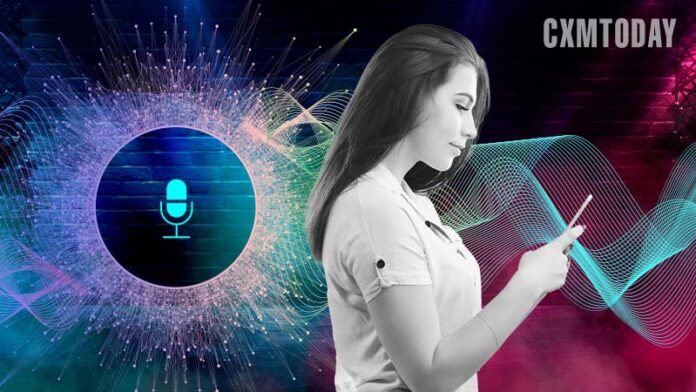By harnessing the power of automatic speech recognition systems, contact centers can boost CX and get over the regulatory compliance hump.
Customer satisfaction is critical in contact centers. Customer happiness, loyalty, and eventually, a company’s bottom line can all be impacted by a poor customer experience. According to VisionCritical, a consumer intelligence platform, the total cost of a bad customer experience (CX) in the US is more than $537 billion yearly.
According to a PwC survey, one out of three customers is willing to contemplate abandoning a beloved brand after one bad experience. And, after cost and product quality, 73% of buyers say that experience is the most significant aspect of their purchase decisions. Customers are willing to pay more for the experience qualities that matter most to them: 43% of customers would pay more for greater convenience, 42% for a friendly, welcoming experience and 65% of US customers believe that a positive brand experience is more influential than great advertising.
While contact center engagements used to be restricted to phone calls, they have now evolved into a more customized, omnichannel strategy that includes phone, text, email, chatbots, and other channels.
Text based interactions are frequently pushed into analytics engines to understand consumer interactions better, while speech data is generally ignored.
To compensate, many contact centers record calls for compliance and dispute purposes. This call data can be a valuable asset for analyzing customer interactions – something that is woefully underutilized. Research from Call Center Helper suggests that contact centers analyze less than 3% of customer interactions – meaning 97% of data stays untouched.
Driving enhanced CX with speech recognition tech
Contact centers can use this information to improve CX. Speech recognition technology is the key to unlocking new meaning and value from customer contacts at scale since it allows for the easy archiving and evaluation of 100% of customer interactions. Patterns and trends may then be identified and used to better customer decisions.
By combining insights obtained by analyzing voice data with other omnichannel sources, contact centers can get a more holistic view of the customer experience across all touchpoints. This allows contact center managers to improve agent training and evaluation, highlight best practices, and get feedback on customer interactions.
However, for an analytics platform to add value, it must be able to pull from highly accurate data. Advances in machine learning and artificial intelligence have paved the way for speech-to-text technology that can detect and transcribe in real-time as well as recorded calls.
Voice tech can get over the hump of regulatory compliance
Agents in contact centers are tasked with keeping customers happy, but with rising call volumes, pressure to reduce call handling time, and a diverse range of customer personalities, this task can be more difficult than it appears. Contact centers may guarantee that customers’ concerns are addressed more quickly and effectively by routing difficult calls to the contact center workers most likely to be able to help. Voice technology allows for real-time call detection and effective contact center call routing, connecting callers to specific agents or specialized teams that are better qualified to handle the difficulties.
Speech recognition technology also plays an essential role in regulatory compliance since contact centers are under growing pressure to maintain the security of all recorded call data. Contact centers can convert speech data into text in the event of a compliance issue, sorting searches by relevance and showing them as text summaries with search phrases automatically highlighted. This automatically enables call centers to analyze and categorize client interactions into categories relevant to specific compliance standards.
A real-time transcribing system can enhance compliance during a conversation by ensuring that the proper things are spoken, preventing non-compliant conduct such as mis-spelling.
Empowering contact center agents with voice tech
Agents are a contact center’s most valuable asset, so giving them the tools they need to execute their jobs better is crucial. Using call transcripts to identify best practices by analyzing how issues have been handled in the past to achieve first contact resolution, speech recognition technology allows for personalized agent training based on real-life interactions with customers. This study can also reveal patterns and trends, which can aid in the resolution of future disputes. Suppose a company discovers that customers are satisfied with its products but dissatisfied with its delivery method; in that case, it can make the necessary changes to the delivery method to improve customer satisfaction.
When individuals communicate, their words are frequently insufficient to convey their true meaning. People’s speech patterns, such as word emphasis, speech rate, loudness, and so on, reveal their sentiments about a situation. Contact centers utilize sentiment analysis to assess a customer’s mood and which replies elicit favorable or unfavorable feelings based on the tone, pitch, and frequency of their voice. However, even the strongest analytics tools and sentiment engines require the correct input to maximize their usefulness. Converting a customer’s voice into a readable format for sentiment analysis relies on accurate speech-to-text technology.
Customers are increasingly looking for consistent, tailored experiences. Machine learning and artificial intelligence provide contact centers with new ways to deliver this experience. The key to success will be using the potential of automated speech recognition technology and turning it into business insights and an exceptional CX.




